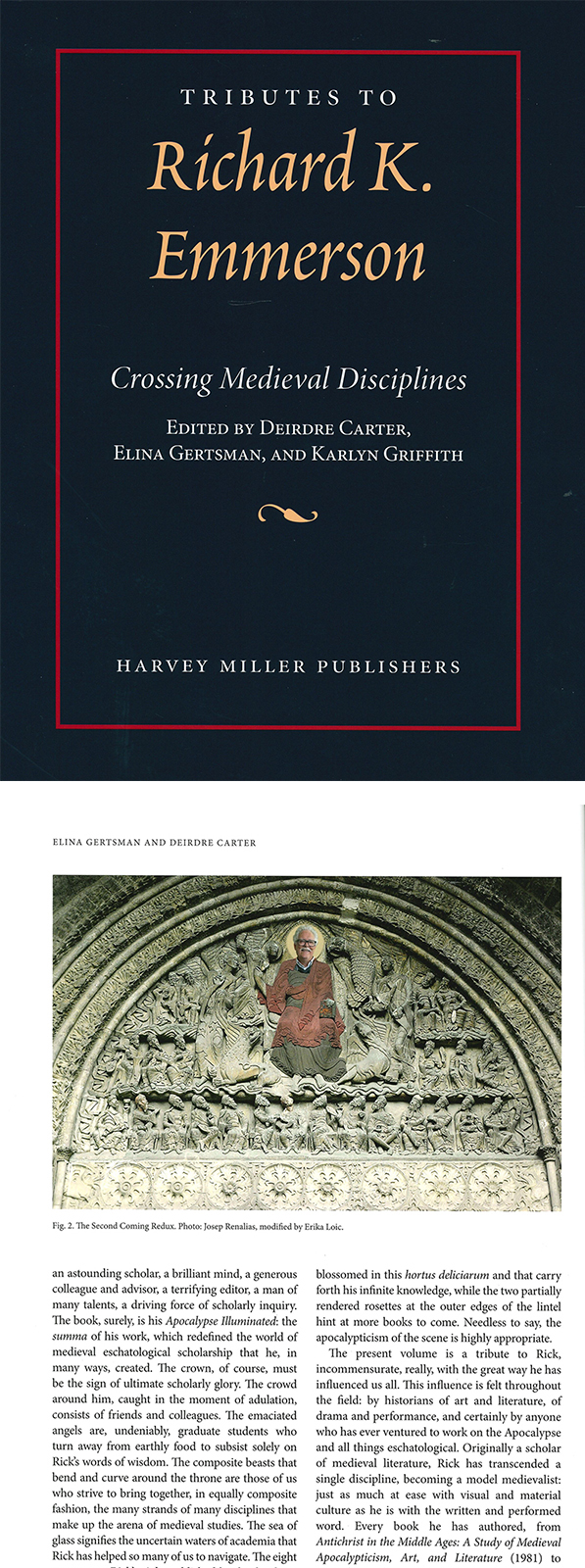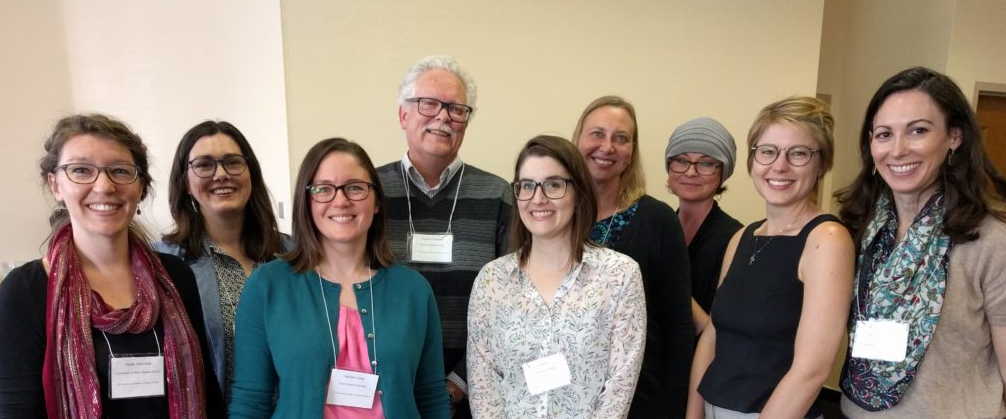Colleagues Honor Richard Emmerson with Festschrift in 2021
 Visiting Distinguished Professor Richard K. Emmerson was honored for the influence and depth of his scholarship in 2021 with a Festschrift by colleagues and former students. Dr. Emmerson researches, teaches, and publishes on medieval apocalypticism and its representation in art, drama, and visionary poetry. He was professor and chair of the Department of Art History from 2006–2009.
Visiting Distinguished Professor Richard K. Emmerson was honored for the influence and depth of his scholarship in 2021 with a Festschrift by colleagues and former students. Dr. Emmerson researches, teaches, and publishes on medieval apocalypticism and its representation in art, drama, and visionary poetry. He was professor and chair of the Department of Art History from 2006–2009.
Tributes in Honor of Richard K. Emmerson: Crossing Medieval Disciplines was published in July 2021. The Festschrift is an interdisciplinary collection of essays celebrating the scholarship of one of the most prominent medievalists of his generation. Two of Emmerson’s former students and FSU alumnae, Deirdre Carter (PhD 2017) and Karlyn Griffith (PhD 2014), along with Case Western Reserve University professor Elina Gertsman, edited the essays by Emmerson’s colleagues and former students. Notable contributors include Professors Jack Freiberg and Paula Gerson, former FSU English professor Elaine Treharne, and FSU Art History alumnae Sarah Andyshak (PhD 2015) and Jennifer Feltman (PhD 2011), as well as Carter and Griffith. The authors have donated a copy of the publication to the Department of Art History’s Rose Library in the William Johnston Building.
As the Festschrift’s subtitle implies, Emmerson’s career has crossed numerous academic disciplines through which he has developed an authoritative and enduring voice in the fields of manuscript and Apocalypse studies. He received his doctorate in English from Stanford University and began teaching and researching medieval English drama, literature, and theology. At Stanford, Emmerson had studied with renowned medieval art historian, Suzanne Lewis, with whom he would later co-author the three-part “Census and Bibliography of Medieval Manuscripts Containing Apocalypse Illustrations” in Traditio. His early publications regularly focused on art historical topics as they relate to what Emmerson has coined “visual exegesis,” or the informative way images are received by reader/viewers.
The publication is a testament to Emmerson’s influence on colleagues and students, and their deep regard for him as an educator and a friend. Doctoral candidate Britt Boler Hunter writes,
In my first class with Prof. Emmerson, he described the aim of scholarship as contributing to collective knowledge by ‘standing on the shoulders of giants,’ referring to the famous medieval metaphor. I think his contributions to the fields of medieval literature, drama, theology, art, and especially apocalypticism are gigantic and the most deserving of this fabulous Festschrift. On top of being a world-class scholar, he’s also a world-class teacher, advisor, and mentor and it’s been a joy to learn from him.
Emmerson joined the FSU Art History department in 2006 as Professor and Chair after having served as the Executive Director of the Medieval Academy of America from 1999 to 2006. Some of his most esteemed career highlights include serving as Deputy Director at the National Endowment for the Humanities, editing top medieval journals Speculum and Studies in Iconography, and participating on the editorial board of Gesta. Emmerson’s numerous publications include authoring or editing nine books, including his most recent monograph Apocalypse Illuminated: The Visual Exegesis of Revelation in Medieval Manuscripts (2018) and his two apocalypse commentaries, The Apocalypse of Jean Duc de Berry (2020) and Picture-Book Apocalypse with the Life of St. John and the Apocalypse (2020), co-authored with Britt Boler Hunter and provenance researcher Peter Kidd.
Emmerson has recently retired to New Hampshire with his wife Sandi and rescue dog Bella to be closer to family and friends in surrounding New England and New York.

Richard Emmerson with colleagues/former students Sarah Andyshak, Jennifer Feltman, Deirdre Carter, Beth Woodward, Jennifer Courts, Carey Fee, Sarah Shivers, and Karlyn Griffith at a special session in his honor at the 52nd International Congress on Medieval Studies in May 2017.